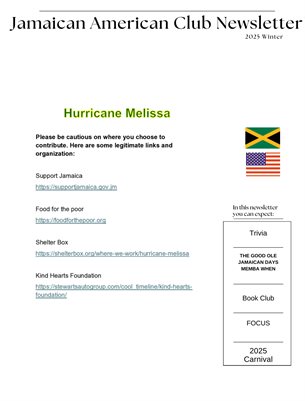IS THERE ANY CORRELATION BETWEEN THE INVOLVEMENT OF FATHERS IN THEIR SON'S LIFE, EDUCATION & GANG CULTURE?
Written by Myrna Loy
In a nutshell to a significant degree! Although, not just academic education - fathers need to teach their sons about how to survive in the outside world, in other words, life experiences. Fathers need to engage in activities they both enjoy. It's about the father being a positive and major influence in his son's life. The most caring parents can miss the signs - but because they are working or busy, they assume their children are adult enough to cope. Many fathers instruct their boys to stand up to the bullies without assessing the situation for themselves. Most boys are afraid to talk to their father about problems they face at school for fear of rebuke or ridicule, so they put on a brave face in front of their fathers. Fathers should not underestimate what types of situations their children can deal with and should enquire, investigate and analyze before giving advice or making suggestions. Fathers need to empathize with their son's more and be there for them, and if fathers cannot be there, then someone should be there to support them. Boys need praise from their parents, especially when they do things well to help raise self esteem at an early age so they don't feel the need to prove themselves to anyone under any circumstances. I strongly feel that if boys had moral guidance from their fathers; if they respected their fathers; if their fathers were an integral part of their upbringing, it would go a long way towards reducing gang culture and black-on-black crime.
I was saddened and alarmed when I heard one of the presenters on BBC3 Counties Radio say that we should send our young black men to join the National Service and put them in the front line to know what fear is like. He also said "forget about this generation - it's too late - let's work on the next one!" This was in response to the NUT report about the need for black fathers to be more responsible in order to prevent gun crime and subsequent killings. I wondered if this was what our young boys were hearing time and time again? Adults passing the buck; parents who can't be bothered to find out the root cause of the problem!! This is a typical example of shifting the responsibility onto somebody else. Although they look like men, these are young boys who did not ask to be born. They are not responsible for the break up in relationships. If the father walks out and they lose their role model (who might not have been a good one in the first place) it's not their fault but some boys are made to feel as though it is their fault.
Many parents constantly blame the system, the schools, racism and bias for the stream of killings that have taken place since the beginning of the year, and while these factors may be marginally instrumental, I think that it is the lack of stability, structure and nurturance in the home of these young boys that is at the root cause of this frightening trend. Parents are getting younger and younger [children having children] and many do not want their children to interfere with their recreational time and social lives. They pass their kids around to whoever is available to keep 'an eye on them' while they go off and behave as though they have no responsibility. Some think raising a child is about making sure s/he looks "cute", has a 'bad' outfit on and placating them with 'luxuries' to keep them quiet. Some over react when disciplining because their child has embarrassed them in public. I have heard many use the F-word to 2 -5 year olds. The child grows up with no boundaries, no respect, little genuine affection and soon learns that he is 'in the way', getting on mummy's nerves and when he cries because he is not receiving attention or recognition s/he is punished. It can get mummy's back up when children ask: "where's daddy" when he is no longer in the picture and I am not sure if mothers realize how important it is to have positive male role models in their lives when they have male children, especially if the father is not around, otherwise the child feels let down and suffers from paternal neglect/absence.
Where is daddy? For some of these young 'victims', the relationship between their parents has irretrievably broken down and/or the father can't be bothered or just doesn't want to know anymore. Many fathers are just too young and immature to take on the responsibility so the child suffers. Some young parents didn't want a child in the first place and feel resentful because the child is impeding their lifestyle. Many boys are forced to fend for themselves too soon. Their childhood is taken away from them - no tree climbing or explorative games anymore. No train sets or other trade-stimulating games as these activities are replaced by computer games; music videos and DVDs Boys, just as much as girls want love, adoration and respect from their parents and not only when they are young and cute, but in their teens too.. When they don't get it from parents, they are forced to get it from outside the home via girlfriends or peer groups. Once they boys have taken this route, they feel compelled to do whatever they have to in order to maintain those alliances, and sometimes it means being heckled to carry out a flippant threat, which they didn't mean in the first place.
I am not by any means suggesting that ALL parents single or otherwise, treat their sons in this way, but I am suggesting that many parents who are too young to know better, do. Parents regardless of age need to take responsibility for their sons especially, because is the sons more than the details who are currently being killed by someone else’s' son. If you, as a parent had them too young and it was a mistake - IT IS NOT THEIR FAULT!!! Parents had a choice, however young, to use protection when having sex, not just to protect them from sexually transmitted diseases but to prevent them from having children, but they didn't take that choice. Now they behave as though their children impede their progress, cramp their style and their plans for the future. There is a reason why older parents advise against having children at a young age. It is because they know the sacrifice it takes to raise children properly and how time-consuming it can be to instill credible values in boys to enable them to grow up to be self-sufficient and self-respecting young men.
If you talk with many of the boys out there who look like aggressive men in their Hoodies and oversized clothes, they sound like children, and that is what they are - but many of us forget that and mistake their size for maturity. Many young girls these days do not seem to be supporting them enough either and they should, otherwise where is the support going to come from? In a debate I attended recently, the young girls aged between 19 and 23 seemed to be cajoling the male graduates to a life of crime with their high and unreasonable expectations. They were undervaluing our black British boys making them feel inadequate, which could be a reason why those with low self- esteem try to prove themselves in less productive ways.
There is something very stimulating about a man who knows his stuff. The problem is that our young men are using ineffective methods to impress. They need to look at themselves in the mirror and ask themselves - where do I want to be 5 years from now, and work towards that instead of worrying about what 'dere niggaz' think of them. If parents knew that the way they raised their children would influence or adversely affect them for the rest of their lives - I wonder what they would do differently.
A NOTE FOR THE BOYS OF TODAY AND MEN OF TOMORROW
If you think your parents have given up on you. - don't give up on yourself. If your father is not home or has left home - don't feel responsible. That's your mum and dad's problem - not yours. If your mother or fathers are not giving you the encouragement you seek, look into the lives of a people who have achieved and whom you admire and get your credibility BY learning from their experiences You will be surprised how many high achievers were left to fend for themselves! Buy their biographies and learn about the obstacles they faced and how they overcame them. This knowledge will enable you not to feel so disappointed with your life and it will stop you feeling like a failure when you make mistakes. You will know how to rise above them and learn how to fulfill your ambitions for yourself. Last but not least, don't resort to violence regardless how you want to feel a part of a group - or want to feel accepted, because after you have killed someone - no-one worth knowing wants to have anything to do with you!
Conversely, if you sense someone around you needs is being manipulated or moving in the wrong direction, see if there is anything you can do to form friendships. Steer clear of situations that can damage your reputation and the love you could have for yourself. And yes, we know that teenage killings are happening in all cultures, but right now we are concerned about our children, our black children - the boys of today who will be men in the next generation. We need to let them know that we care and that we haven't given up on them!















